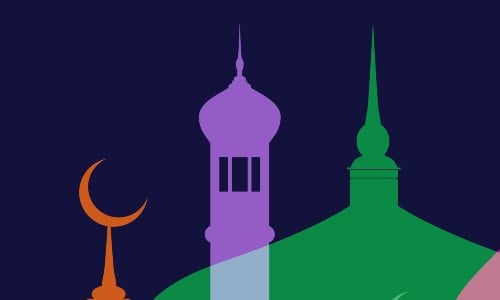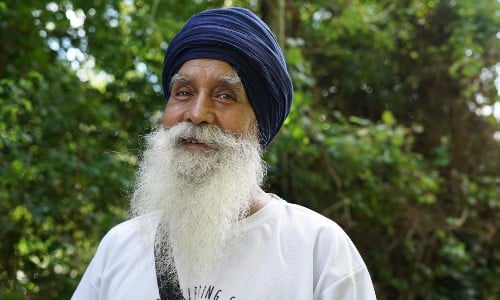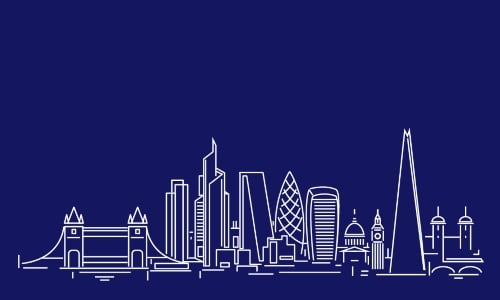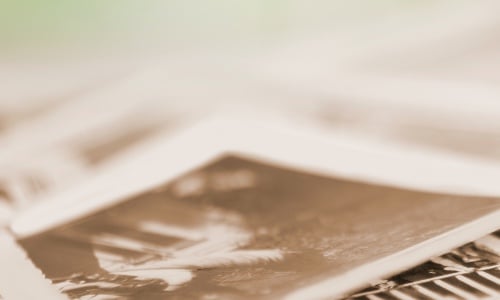Ramadan is observed by Muslims worldwide as a month of fasting, prayer, and abstaining from things considered impure to the mind and body. Here, Unaiza offers a personal account of her relationship with Ramadan and an explanation of what it entails.
Unaiza (pictured) is 77 and has lived in England for 46 years. As well as raising a family, Unaiza began work as a trainee computer programmer, believing IT to be an important role for the future. Her successful career culminated in a role as director at an IT company specialising in telecommunications for airlines, which she retired from aged 60.
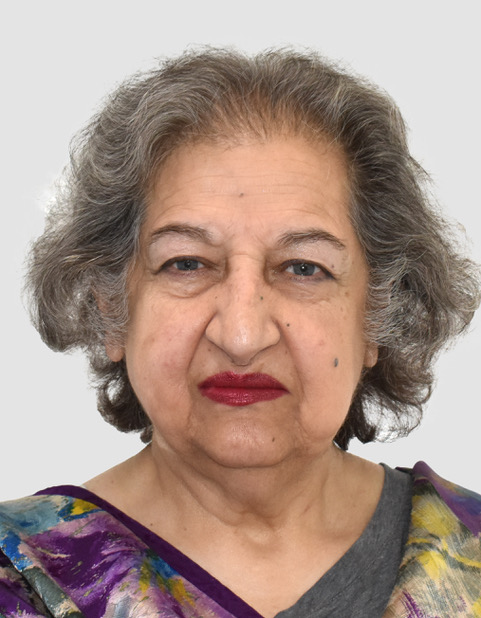 Like the estimated 1.8 billion Muslims in the world, her faith is a central pillar of her life, with Ramadan providing an important opportunity to express her dedication. “During Ramadan, Muslims refrain from eating and drinking from dawn to dusk,” she explains. “It is not simply a matter of starving during those daylight hours; we endeavour to exercise control over all our actions in what in the modern day we call ‘mindfulness’. In an age when fasting is used by many for dietary purposes, Muslims fast during Ramadan to affirm our faith.”
Like the estimated 1.8 billion Muslims in the world, her faith is a central pillar of her life, with Ramadan providing an important opportunity to express her dedication. “During Ramadan, Muslims refrain from eating and drinking from dawn to dusk,” she explains. “It is not simply a matter of starving during those daylight hours; we endeavour to exercise control over all our actions in what in the modern day we call ‘mindfulness’. In an age when fasting is used by many for dietary purposes, Muslims fast during Ramadan to affirm our faith.”
Unaiza spent most of her formative years growing up in Karachi, Pakistan’s largest city, where she enjoyed a “beautiful” upbringing living with her extended family. She was an inquisitive child, always wondering why the adults did some of the things they did, with a particular fascination with fasting. Why was everyone else fasting during Ramadan? Did God want them to starve, she wondered?
A lesson for life
One day, when pestering her mother for an explanation, her grandfather, who she called ‘Dada’, sat her down to explain. “My Dada asked me: ‘Did you secretly drink water in the kitchen?’” she recalls. “When I said I didn’t, he reminded me that I could have done it since no one was looking. I said I could not since God would know. My Dada then explained: ‘So you acknowledge from within yourself that someone can see you — that God exists — and acknowledge that He is All-Knowing and All-Seeing’.” Aged 7, Unaiza was allowed to do a full day of fasting.
Unaiza says the words of her grandfather resonate with her even more than they did 70 years ago. “With age, I’ve started to look for deeper explanations as to why I pray and why I fast.” Periods of ill health have meant she’s been unable to fast in recent years, though Islam allows exceptions for many, including older people and the sick.
An evolving relationship with faith
There have been other times in Unaiza’s life when she was less able to commit time to her faith, such as when she first arrived in England with 4 young children. “As I’ve grown older and the children have left home and I have more time, I find that I’ve become more conscious of the fact that I’m going to be meeting my Maker. That creates in you a desire to become closer to your faith, so that when you do stand before Him, you’re not ashamed of the life that you’ve led. I therefore pray more deeply for His guidance.”
So, what does Ramadan entail? How does someone’s relationship with Ramadan change as they grow older? Unaiza kindly explains:
Ramadan in Unaiza's own words
As Muslims we don’t believe the religion of Islam is new; we believe it is a continuation and completion of the older religions that were sent by God through men we call ‘prophets'. Similarly, we believe that fasting is not new but has been practiced in different forms by many different people throughout time.
For Muslim adults, fasting each day between sunrise and sunset for 1 entire lunar month has been made a religious duty — an obligation that will be rewarded by God. The lunar calendar is based on the circumnavigation of the moon around the Earth, unlike the now commonly used Gregorian calendar.
During this lunar month, called Ramadan, Muslims refrain from eating and drinking from dawn to dusk. Each day for that entire month, breakfast, and a vocalised intention to fast for the day, is completed before the sun rises. At sunset, the meal known as ‘Iftar’ is a celebration for having successfully completed the fast for the sake of Allah.
Each country has their own traditional special dishes for Iftar, usually a mix of savoury and sweet to tempt the palate, and with emphasis on nourishing herbs, fruits, and hydrating drinks.
Children are not obliged to fast until they are about 11 or 12 years old. From an early age, however, they join the celebratory meals in the evenings, and they watch adults around them fasting through the day. In most families, children aged 6 or 7 want to be able to fast. They are therefore encouraged to practice a half day fast to learn self-control. Their partial fast starts in the afternoon, and they learn to recite the prayer that represents the intention to fast, and later join the adults at Iftar.
The children watch all the preparation, wait with anticipation doing a mental countdown for the call to prayer called the ‘Azan’, which announces the sunset. They then break their fast with dates and water, or some sherbet, following the tradition of Prophet Mohammed (peace be upon him), while sharing the table with the adults.
The month of Ramadan is also a time to give generously from the wealth that God has given us, sharing it with those in need. Muslims are encouraged to share their wealth generously and many do so throughout the year. During Ramadan, with our thoughts focussed upon all of Allah’s undeniable gifts to mankind, this generosity takes the form of donations to charities.
Traditionally Muslims greet each other at the start of Ramadan by saying ‘Ramadan Mubarak’ and ‘Ramadan Kareem’, meaning ‘a blessed and generous month to you’.
The day after the end of the month of Ramadan is called ‘Eid al-Fitr’, which literally means 'a day of celebration'. The celebrations start immediately on the sighting of the new moon on either the evening of the 29th day of fasting or the 30th. There is a joyous atmosphere. Young girls compete in applying the best henna patterns on their hands. New clothes are laid out ready for the Eid prayer gatherings the next day.
The morning of Eid is celebrated by a prayer, while gifts are exchanged, with children given spending money in addition to gifts. It is customary for younger persons to visit older relatives. Lots of luxury foods are consumed, such as vermicelli cooked with honey, nuts and milk, which is a speciality dish I associate with Eid. I have celebrated Eid in other countries too. In Cape Town I’ve enjoyed samosas; in Istanbul and Morocco it was Halwa made from semolina.
Whatever the food, Eid the world over is a festival celebrating the successful completion of the month of fasting, and a sharing of the wealth bestowed upon us with those in need.



